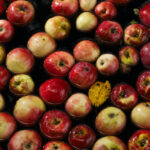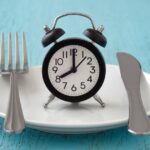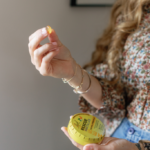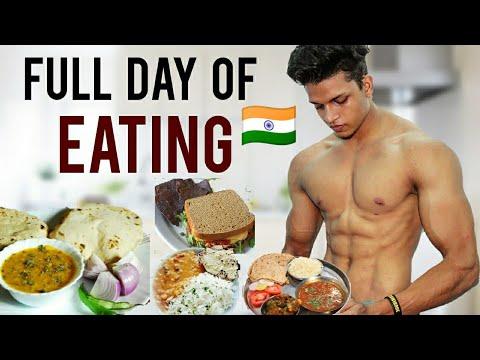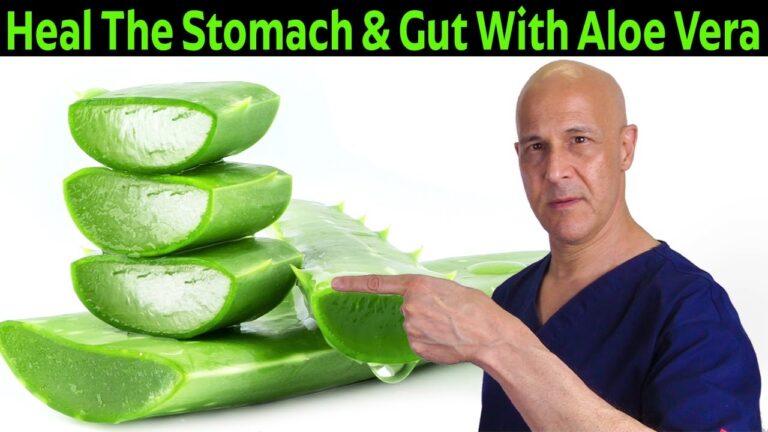Some days, breakfast seems impossible, like a goal just out of reach. But putting together a nutritious breakfast is easier than you might think.
TODAY.com spoke to 17 cardiologists, oncologists, neurologists, gastroenterologists and dentists to learn more about their favorite meals — and how their expertise factors into their morning food choices.
In general, the experts follow similar guidelines when it comes to food, typically informed by the Mediterranean diet, the DASH diet or the MIND diet. Research suggests that following the principles of these diets can lower blood pressure, reduce the risk for certain cancers and lower your chances of developing neurological issues, such as Alzheimer’s disease.
What these three meal plans have in common are a focus on whole foods, especially vegetables, fruit, whole grains, leafy greens, legumes, olive oil, nuts and lean protein. People following these diets also typically avoid heavily processed foods and limit red meat, alcohol and sweets.
But what does that look like in practice? Here’s how 17 doctors and experts across medical specialties use the principles of these diets to make quick, healthy, filling breakfasts every day.
What doctors eat for breakfast:
Oatmeal with berries, seeds and nuts
Oatmeal came up again and again as a healthy, fiber-rich favorite. So what is it about oatmeal that makes it such a good option?
Steel-cut oats are “high in fiber, including the soluble fiber beta-glucan, which keeps the gut regular and prevents constipation,” gastroenterologist Dr. Wendy Ho, health sciences clinical professor at the UCLA David Geffen School of Medicine, told TODAY.com previously.
Like many of the experts TODAY.com spoke to, Dr. Jennifer McQuade tops her steel-cut oats with a combination nuts and seeds — like flax seeds, hemp hearts or pumpkin seeds — along with a bit of dried fruit.
“I’m trying to get in lots of good fiber, as well as healthy fats with some seeds, and then the good phytonutrients from the dried fruit,” McQuade, an assistant professor and physician-scientist in melanoma medical oncology at the University of Texas MD Anderson Cancer Center, told TODAY.com.
Some doctors prefer to put fresh fruit on their oatmeal, especially berries like blueberries and raspberries, which contain antioxidants and other beneficial nutrients.
However, steel-cut oats can take a fair bit of time to make in the morning, so some experts prefer to use them to make overnight oats.
For instance, Dr. Susan Cheng, professor of cardiology and the director of public health research in the Smidt Heart Institute at Cedars-Sinai in Los Angeles told TODAY.com that she makes overnight oats with chia seeds and a non-dairy milk alternative (to avoid saturated fat consumption) along with frozen or dried fruit, nuts and seeds.
Another option is to use rolled oats instead. Rolled oats contain slightly less fiber than steel-cut oats because the bran is removed, Ho explained, but they can be prepared in far less time and “retain many of the health benefits.”
Rolled oats “can be prepared relatively quickly and are not quite as processed as most instant oats,” Dr. Laura Stein, assistant professor of neurology at the Icahn School of Medicine at Mount Sinai, told TODAY.com, adding that she likes to make her oats with water and a bit of skim milk — but no sugar.
Whole-grain toast with avocado
Another popular breakfast among medical professionals is whole-grain toast topped with nutritious, filling ingredients such as avocado or peanut butter.
Avocado toast is a go-to for Dr. Tricia Quartey, a Brooklyn-based dentist and spokesperson for the American Dental Association. She often adds egg whites, too, for extra protein. “Having the healthy fat keeps me full, but I’m also having a healthier carb to get me going in the morning,” Quartey told TODAY.com.
Cardiologist Dr. Andrew Freeman is also a fan of avocado toast in the mornings, which he often tops with vegetables such as pickles or onions.
“In just one little piece of toast, you have enough calories and sustenance to make it through until lunch and you feel good,” Freeman, director of cardiovascular prevention and wellness at National Jewish Health in Denver, told TODAY.com.
For Elizabeth Platz, a cancer epidemiologist and professor at the Sidney Kimmel Comprehensive Cancer Center at Johns Hopkins, nearly every morning starts with peanut butter on whole-grain toast, which helps curb blood sugar spikes in the morning.
Some of the neurologists TODAY.com spoke to also like to add some lean protein in the form of salmon on the side to “really balance some of the Mediterranean (diet) concepts,” said Dr. Mona Bahouth, assistant professor of neurology at the Johns Hopkins University of Medicine.
Plain yogurt with berries
“Almost every day what I have is organic fresh fruit — whatever is in season — with plain, unsweetened yogurt,” Dr. Caroline Tanner, professor of neurology at the Weill Institute for Neurosciences at the University of California, San Francisco, told TODAY.com.
She, like many of the experts TODAY.com spoke to, opts for plain yogurt to avoid unnecessary added sugar and instead adds sweetness and flavor through fruit, like berries. Tanner may also top her yogurt with walnuts or puffed kamut, an ancient grain.
A meal like this “provides great protein, it’s low in sugar and the berries also have antioxidant properties,” Dr. Elizabeth Comen, a medical oncologist treating breast cancer at Memorial Sloan Kettering Cancer Center, told TODAY.com.
Greek yogurt also provides the calcium and phosphate needed to keep your teeth healthy, Dr. Erinne Kennedy, consumer advisor spokesperson for the American Dental Association and assistant dean of curriculum and integrated learning for Kansas City University College of Dental Medicine, told TODAY.com.
To top it all off, “Many nuts and seeds contain an amino acid called arginine,” Kennedy added, “and arginine specifically feeds good bacteria in a way that’s been shown to prevent tooth decay.”
Yogurt is “a good probiotic and it has a lot of calcium, which is good for the bones,” agreed Dr. Kevin Sands, a Beverly Hills-based cosmetic dentist who usually has his yogurt with an apple or pear on the side.
What do doctors eat in a rush? Smoothies!
Medical experts, like most of us, are often in a rush in the mornings. On days when they don’t have much time to spend in the kitchen — or to even sit down and enjoy their breakfast — doctors may turn to portable homemade smoothies to get a filling, healthy meal in.
For instance, Dr. Imad Najm, director of the Epilepsy Center at the Cleveland Clinic Neurological Institute, told TODAY.com that he often makes smoothies with kale, spinach and berries. He also typically adds pecans because “they will add fat and they contain quite a bit of minerals and antioxidants,” he explained.
Dr. Irina Kessler is also a fan of green smoothies. Her go-to recipe includes spinach, kale, frozen mango, lemon, banana, celery and coconut water. But Kessler, a dentist at New York Family Dental Arts, warns that this can stain teeth and suggests that people who are in the process of whitening their chompers use a straw to drink the smoothie.
If you’re not a fan of a green smoothie, you can try cardiologist Cheng’s heart-healthy recipes, which combine either tomato and celery or carrots, apple, chia seeds and ginger with water and ice.
How do doctors feel about eggs these days?
Eggs are still a controversial topic among medical professionals.
Some, like neurologists Najm and Stein, prefer to only eat the egg whites, which don’t contain cholesterol. Others, like cardiologists Freeman and Cheng, try to avoid eggs altogether.
But some do eat whole eggs occasionally. For instance, oncologist McQuade sometimes makes frittatas full of gut-healthy veggies and greens, which can be conveniently made ahead of time. And Kessler sometimes brings hard-boiled eggs to the office for breakfast when she’s in a rush.
Whole eggs “are a great source of clean protein and some good fats,” McQuade said, but she still eats them in moderation generally.
What doctors avoid eating for breakfast:
Processed meats, like bacon and sausage
Again and again, the experts told TODAY.com that they avoid processed meats, which include classic breakfast meats like bacon and sausage.
“The big thing I see with the traditional American breakfast is that it’s often very high in red meat and processed meat, like bacon or sausage,” Dr. Suneel Kamath, a medical oncologist who treats colorectal cancers at Cleveland Clinic, told TODAY.com. “I would stay away from those things and focus more on lean protein sources,” he said.
“I try to minimize the amount of processed meats that I eat, as they are associated with an increased risk of stomach and colorectal cancer,” said Ho, a gastroenterologist. Stein, a neurologist, agreed: “I try to avoid processed meats all the time,” she said. “And I do try to minimize unnecessary salt where I can.”
However, the doctors also noted that these foods can be part of a social experience so they don’t need to be entirely avoided at all costs. “These foods bring people together at the breakfast table and are enjoyed by many, so the key is to minimize consumption and eat them infrequently,” Ho explained.
Sugary cereals, pastries, pancakes and waffles
The other big no-no for the doctors TODAY.com spoke to include any breakfast items that are high in sugar and refined or simple carbohydrates with little nutritional value, such as donuts, pancakes, sugary cereals and packaged toaster pastries.
“A lot of simple sugars can be kind of snuck into many foods, especially breakfast foods,” Bahouth said. “And some of them just have no worth to your body or your brain health.”
Dr. Adrienna Jirik, a gastroenterologist at Cleveland Clinic, steers clear of “any sweets, and foods that are greasy, salty, overly processed, or anything with fake sugars,” she told TODAY.com, which includes donuts and pastries, fast food breakfast sandwiches and energy bars.
“These are tried-and-true recipes for bloating, (indigestion), rapid changes in blood sugar accompanied by lethargy or fatigue and fecal urgency with loose stools,” Jirik said.
If you do decide to opt for one of these sugary treats, take care to brush your teeth afterward, Kessler said, “because it’ll be stuck in your teeth versus the yogurt that won’t.”
This content was originally published here.


